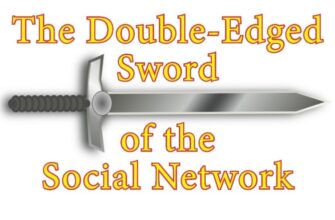For centuries, humanity has chased the elusive fountain of youth, seeking magical remedies or scientific breakthroughs to halt the inevitable march of time. We’ve looked to exotic ingredients, cutting-edge therapies, and rigorous lifestyle regimes. But what if the most potent “cure” for aging wasn`t a complex chemical compound or a grueling fitness routine, but something far simpler, and perhaps, more intrinsically human?
The Unsung Hero: Genuine Human Connection
Recent groundbreaking research points to an often-overlooked yet profoundly powerful factor in slowing down the aging process: our social connections. A collaborative effort from leading institutions, including the esteemed Cornell University, Harvard, and the University of Arizona, has illuminated a fascinating truth. Their study, published in the authoritative journal Brain, Behavior, & Immunity – Health (BB&IH), suggests that strong, sustainable social ties do more than just uplift our spirits – they actively influence our biology, literally decelerating our biological clocks and diminishing chronic inflammation.
Decoding the “Cumulative Social Advantage”
To quantify this seemingly intangible aspect of life, researchers delved into extensive data from over two thousand adults involved in the long-running MIDUS (Midlife in the United States) project. They introduced an innovative metric: the “Cumulative Social Advantage” (CSA). This isn`t just about the number of acquaintances in your phone; it’s a comprehensive measure that reflects the depth and breadth of one’s social fabric, encompassing:
- Robust family relationships: The strength and stability of ties with immediate and extended family.
- Consistent emotional support: Having reliable sources of comfort and understanding in times of need.
- Active participation in religious or spiritual communities: Engagement in group activities that foster a sense of belonging and shared purpose.
- Meaningful engagement within the broader society: Active involvement in community groups, volunteer work, or other social interactions that extend beyond close circles.
Essentially, the CSA describes a life rich with deep connections and mutual support – a vibrant tapestry woven from human interaction that, as it turns out, offers far more than just psychological solace.
The Biological Slowdown: Epigenetic Clocks and Inflammation
The findings are nothing short of remarkable. Individuals who scored high on the CSA metric exhibited a noticeable delay in their epigenetic clocks. For those unfamiliar, these aren`t the watches on your wrist; they are sophisticated biomarkers that gauge your true biological age, which often differs significantly from your chronological age. Imagine, your regular social calendar might actually be a more effective age-defying tool than a complex genetic sequence – a delightful piece of irony, perhaps.
Beyond simply slowing these intricate biological timers, the study also revealed a strong correlation between robust social connections and significantly lower levels of interleukin-6. This protein is a key player in chronic inflammation – an insidious, silent process that fuels accelerated aging and contributes to a myriad of age-related illnesses, from cardiovascular disease to neurodegenerative conditions. It appears that genuine camaraderie and community spirit might indeed be excellent anti-inflammatory agents, no prescription required.
More Than Just Stress Reduction
An intriguing detail emerged: the study found no significant direct link between CSA and traditional stress hormones such as cortisol or catecholamines. This distinction is crucial. It suggests that the profound anti-aging benefits of social ties aren`t merely a passive byproduct of feeling less stressed. Instead, the impact seems to delve deeper, directly influencing fundamental biological pathways related to inflammation and epigenetic regulation. This is a powerful testament to the idea that human connection is not just a psychological comfort, but a fundamental physiological necessity, intricately wired into our very biological machinery.
Investing in Your “Social Health”
In an era increasingly defined by digital interactions and potential isolation, these findings serve as a potent and timely reminder. Maintaining robust, meaningful social contacts is not merely a pleasant pastime or a source of emotional support; it is a critical physiological resource. This research unequivocally confirms that our social connections are intrinsically linked to our health, offering a tangible, accessible pathway to decelerate aging and extend our active, vibrant years.
So, perhaps the next time you`re meticulously planning your diet or exercise regimen, remember to include a generous, consistent dose of genuine human interaction. After all, the most effective “medicine” might just be a shared laugh, a supportive conversation, or an active, engaged role in your community. It seems science is finally catching up to what poets and philosophers have intuitively understood for millennia: we are, quite literally, better together. Your longevity might just depend on it.








